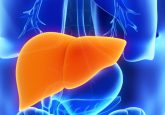Chemical inhibitor may act as lung cancer treatment

Published recently in Nature Chemical Biology, researchers from the Yale School of Medicine (CT USA) have identified a chemical inhibitor known as NGI-1, which limits the growth of lung tumor cells through partial disruption of the glycosylation cycle.
Glycosylation, the process of adding sugar chains to proteins, is essential for all cells. According to lead author Joseph Contessa (Yale School of Medicine), it has long been assumed that disruption of glycosylation in tumor cells could not be achieved without disrupting the same cycle in healthy cells, resulting in serious harm. NGI-1 appears to affect tumor cells the most severely, while at the same time leaving healthy cells relatively untouched.
“This is important to cancer research because what we’re looking for are therapies that don’t have a lot of effect on normal cells but do have a lot of effect on tumor cells, and this falls into that category,” stated Contessa.
The research group, which included colleagues associated with Yale University, the Broad Institute (MA, USA), the University of Kansas (KS, USA), the University of Georgia (GA, USA) and the University of Texas Southwestern (TX, USA), screened > 350,000 compounds while attempting to elucidate a substance that could result in partial disruption of the glycosylation cycle.
NGI-1 inhibits the growth of tumor cells through the disruption of oligosaccharyltransferase (OST), the enzyme responsible for transferring oligosaccharides to receptor proteins. OST is essential in cancer spread, as itglycosylates receptor proteins that tumor growth is dependent on.
However, when glycosylation of OST is prevented, the enzyme is no longer able to efficiently glycosylate receptor proteins, thus hindering the growth of tumor cells. The study claims that NGI-1 only appears to target cells dependent on EGFR and FGFR protein receptors, thus only affecting the growth of tumor cells and having little effect on healthy cells.
Moving forward, Contessa hopes to translate the results of the study to the clinic, with the research ideally providing alternatives to radiation therapy, for example. The study states that the results identify “OST inhibition as a potential therapeutic approach to treating receptor-tyrosine-kinase-dependent tumors”.
Contessa concluded by suggesting that as NGI-1 is a relatively small molecule, it may likely be ingested by patients as pills.
He concluded: “We have therapies, and they’re good therapies, but they’re not enough, we need to take the next step.”





